Change Things Up
Consider it exercise for your eyes and your brain. After all, creativity is about originality, but nearly everything is based on something else—what's original is combining existing elements in ways never before imagined. Sometimes you just need to clear off your desk and rearrange your workspace to get your juices flowing. Other times, it's about taking a trip—to a museum, a store or anywhere—and looking at things with fresh eyes. Even without leaving your home or office, you can read a book from an unfamiliar author or download new music. But you want to make an effort to discover new things on the regular.
Make the Time
If you want your creativity to get stronger, you'll want to exercise it like a muscle. The key is dedicating time in your day to actively thinking, which usually means unplugging from email, social media and more. That's the way to unlock "the digressive, slow, uncertain parts of ourselves that are key to our creativity," says Maggie Jackson, author of Distracted: Reclaiming Our Focus in a World of Lost Attention. There's no harm in scheduling some time to be creative. Set an early alarm and spend an hour in the morning working on a personal project. Or if you're a night owl, set a reminder to get to work for an hour or two before bed.
Get a Second Opinion
This one is less scientific and more based on the simple fact that it's always beneficial to get more than one mind working on a problem. Don't be afraid to ask for help or to get someone's thoughts on an idea. They may provide a unique view that you hadn't thought of or they might spark a completely different stream of thought. Sometimes just talking through your idea out loud helps you gain a new perspective.
Write by Hand
Carrie Barron, M.D., and Alton Barron, M.D., authors of The Creativity Cure, suggest skipping the computer's word doc or your phone's notes app and picking up a pen and a notebook. Sometimes the whole experience of writing by hand—and the free association and doodling—is all it takes to unlock new ideas. Dr. Barron also says that it can be useful to write out the psychological clutter—your worries, concerns, pre-occupations—on a piece of paper and then crumple it up so you can get to more interesting things.
Lay Down
Don't take a nap, but relax and allow the horizontal position to calm your body and mind. Australian researchers found that people solved anagrams more quickly when they were lying down compared to standing up. This led them to believe that we might have our most creative thoughts while flat on our back—and could explain why some solutions come to us just before drifting off to bed.


































